

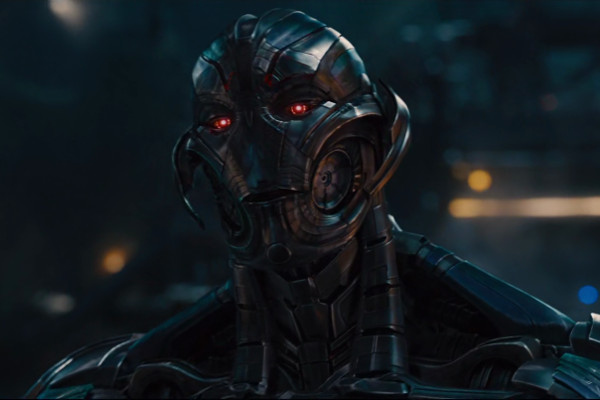
Avengers: Age of Ultron has actually aged better than expected. At the time of its release, it often felt studio mandated, with multiple different plot strands that pointed towards different movies. Just two such instances were the introduction of Klaue, and Thor's vision of the gemstones.
It's difficult to get invested in a film where Ultron - an indestructible android in the comics - is so arbitrary a menace that the lead characters have to disappear to have visions of future, far more imposing threats. But perspective is everything, and what at the time seemed like a somewhat shoddily composed series of set pieces does, with the eventual resolution of the various plot strands in other movies, feel more like a pivotal part of the continuing story.
The glib, "easy" humour also feels better in hindsight, where further films have so scraped the barrel in the name of "laughs" that this one feels positively sedate in comparison. There is, of course, a very serious argument that films should exist in their own right, and that the MCU's continuing reliance on movie-to-movie events does detract from them as individual pursuits. And, despite time looking on Age of Ultron favourably, it's still one of the most shallow entries. There's an attempt to make thinly-drawn characters into three-dimensional ones, and it doesn't really come off. Yet Age of Ultron is passable, watchable entertainment... albeit nothing that you would be likely to remember once the final popcorn kernel has gone down.
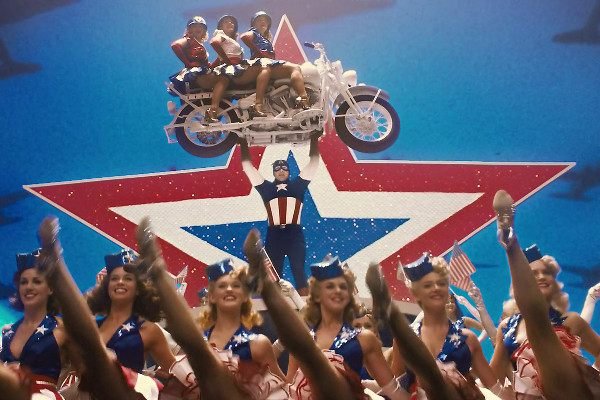
Three years into the "Marvel Cinematic Universe", this was the fifth film in the series, but chronologically the first. Probably around 20 minutes too long, it does drag in parts, though contains enough ironic detachment to make its jingoistic concerns palatable.
There is, of course, a difference between creating a children's comic book in the 1940s promoting the fight against the Nazis, and creating a mainstream film in 2011 doing the same. One is there to offer children hope in troublesome times, the other can't help but seem something of a trivialisation of a very serious time, making a war that killed over 60 million people the province of costumed superheroes.
Captain America is one of the least nuanced of the Marvel characters, but has some of the better entries in the movie range. The First Avenger, ropey German accents aside, is by no means a bad effort, though would have been unlikely to have set the "shared universe" alight the way the first Iron Man film did. It's a solid movie - and none of these movies are bad - but ranks low here for being just not as interesting as the films ranked above it.
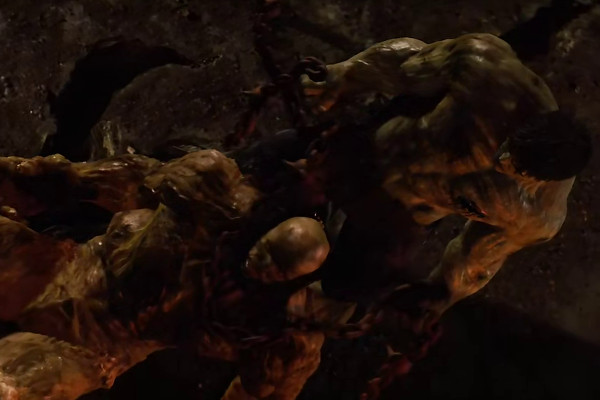
The Incredible Hulk is the forgotten film of the Marvel Universe, actually coming a month after Iron Man, but seeming far longer in history. The main problem with a film featuring the Hulk (including Ang Lee's much-derided and underrated 2003 effort) is that the technology isn't up to a point where the human eye can honestly acknowledge the character as anything other than moving pixels... even almost a decade on, Hulk's appearance in Thor: Ragnarok has to be watched with a squint and a kind heart.
It's a shame, because both are good movies, despite their technical limitations. Made before the MCU truly evolved into something of an assembly line, there's still a sense of risk here, with some beautiful location shooting in Rio de Janeiro and a colour palette that isn't rendered in a primary sheen. French director Louis Leterrier tries to do something a little more artistic with the character in this underrated film, though, like Lee before him, finds that the character doesn't quite gel with genuine film-making, both in execution and audience appreciation. Iron Man is the better overall film, though outside of the genre moviegoers might prefer Edward Norton's more realistic portrayal instead of Downey Jr.'s brash and showy series of tics and mannerisms.
There's also the problem that the Hulk is such a well-known character, his superhero "A List" status almost working against him in this endeavour. The mainstream knowledge of the character perhaps comes not from the comic book but from the very successful television series with Bill Bixby... so much so that the entire origin story can be told in a series of brief silent scenes during the opening credits with no further explanation necessary. This is a film so ensured of its audiences' familiarity with the source that a joke around Edward Norton misquoting the TV series' catchphrase is added to the content, along with the series' "Lonely Man" piano theme.
While an audience might not have wanted another origin story just five years later, and $263,427,551 box office off an $150m movie isn't exactly a flop, this was a film that underwhelmed with theatregoers and was, inflation notwithstanding, the least profitable Marvel movie up to 2020. Factor in the marketing budget and it may have turned a profit of "just" $40 million. While it must be acknowledged that it didn't benefit from 3D or modern ticket sales, when The Incredible Hulk was released, the concept of a shared "Marvel Cinematic Universe" that would generate billions of dollars was still an experimental dream, and was by no means guaranteed.
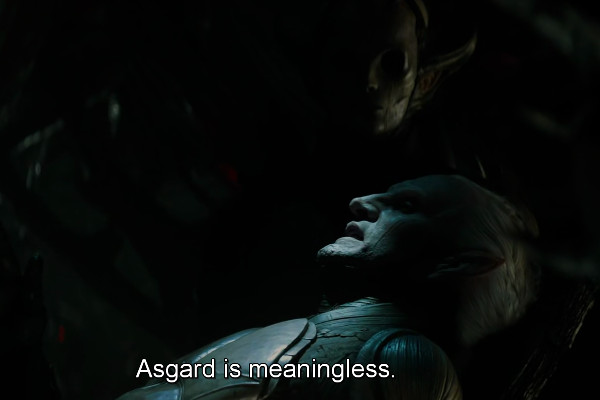
The Dark World is one of the most slated of Marvel Movies, seemingly loved by no one, and resulting in a severe change in tone for the follow-up Thor movie. Most vocal about their dislike was Christopher Eccleston, as the forgettable villain, elf Malekith. Even at the time of release he was on record as doing it for the money, but 2018 saw him even more explicit when talking to The Guardian, stating "Just a gun in your mouth [...] I really paid for being a whore."
While The Dark World is unlikely to top many peoples' list of best Marvel movies - and certainly doesn't here - it's a decent enough timepasser, a watchable fantasy. While Ragnarok went for full comedy in a seemingly desperate attempt to win over audiences, The Dark World has the courage to try for sincerity, along with Tom Hiddleston's always entertaining exploits as Loki. Eccleston has an intensity that doesn't really lend itself to light comic book movies, though the real gimmick here is a climax set in London.
While the UK has been the shooting location for a vast number of superhero antics (with Shepperton Studios including, up to 2018, half a dozen of the MCU movies) it's rare to see a superhero movie where London plays itself*, the comparatively low-key London street making for a left-field choice of action climax. If nothing else, the Thor movies benefit from their relative brevity, their combined 356 minute runtime over fifty minutes shorter than the (admittedly more entertaining) Captain America trilogy.
* A point, of course, since made moot by Spider-Man: Far From Home.
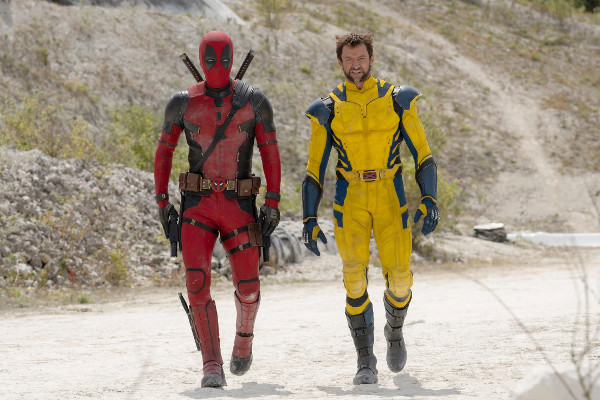
There's not really all that much to say about Deadpool & Wolverine that wasn't already said about the first two Deadpool movies in the Fox X-Men Movies article. While there's the odd chuckle in the film, it's humour that revels in lowbrow, crowd-pleasing junk that thinks repeated swearing and dick gags are the work of Noël Coward.
They're films that want to self-reflexively mock superhero films while at the same time being part of them, and no different in quality; breaking the fourth wall to distance themselves from the genre conventions, while using wit at such a base level that it's in the same class as them. Some of the gags are okay, and a few of the cameos are fun, but ultimately it's a film for the extremely easily pleased. (The increasing use of comic book in-jokes for a relentlessly mainstream movie are also a strange decision: how many casual cinemagoers would have known who John Byrne was?)
Such opinions don't really matter, as the film does what films are ultimately supposed to do: make money. The film made a profit of over a billion dollars, most of it on its first three weeks of release. There's a lot of people that are easily pleased, it seems.
Deadpool & Wolverine has Deadpool openly slate the multiverse and Marvel's direction, only for one character to plaintively insist that the post-Endgame movies have been decent. While it's mockery, it's the belief here at The Anorak Zone that the 11 movies that came between Avengers: Endgame and Deadpool & Wolverine are, overall, of a similar quality to the 10 in the run-up to that movie and Endgame itself - at date of writing Ant-Man to Endgame inclusive averages at 17th place in this ranking, Spider-Man: Far From Home to Marvels 18th place.
However, not only must I acknowledge that my ranking of the movies could be said to be a little "left field", the most important thing are those box office receipts. The first 11 films in the block mentioned (Ant-Man to Avengers: Endgame inclusive) made $10.4 billion when the highest projected production costs are subtracted. The 11 that followed made "just" $5.82 billion.
Perhaps most significantly, it contained the first loss-making film with Marvels taking in $67.8m less than it cost to make. There were another three films - Black Widow, Eternals and Ant-Man: Quantumania that did less than $180m in profit, so may very well have also lost money when things like the promotional budget and the cinema cut are factored into the equation. In fact, with marketing costs, it's possible that those four films combined lost $345 million.
So Deadpool & Wolverine is very popular, and made money. There's even the possibility that Deadpool may have become, as he says, "Marvel Jesus", helping to resurrect an ailing franchise. But when the intellectual bar is so low, it really does make you worry for the future of the human race. Or, to put it another way, dick dick dick fuck fuck fuck.
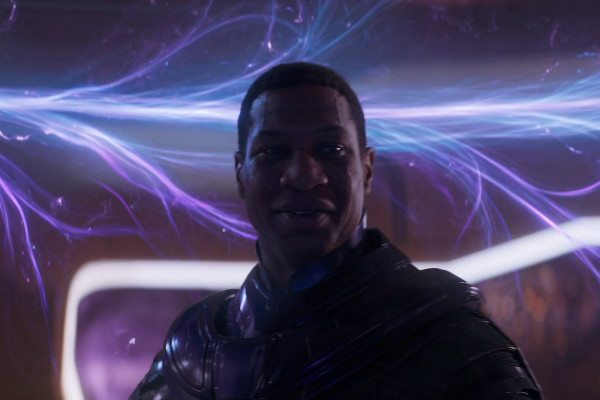
Watched specifically as an Ant-Man movie, this is the worst of the three, but as an overall film, it's the best entry... although this doesn't mean it hasn't taken me nine months to find something to say about it.
Most of the quality of the film comes with a very strong performance from Jonathan Majors as the villain Kang. Real life troubles have seen Majors not only go on TV wearing massive bell bottoms like a Bay City Rollers tribute act, but have also pretty much ensured he won't be reappearing in the franchise. Although Marvel was building future films around the character of Kang, it's perhaps for the best, as, as many have pointed out, it's hard to take someone seriously as a recurring "big bad" when you've already seen them being defeated by a pack of ants.
Beyond Majors and some reasonably interesting looks at the nature of time, the film is pretty stagnant. The lack of genuine physical environments in Marvel films is really harming them, particularly as the CGI really doesn't look that good. With an excess of green screen, things are flung towards the screen, but there's no real motion or kinetic energy behind it. No one would expect a Marvel movie to become the new Cléo from 5 to 7, but the stationary feel to events really deadens the appeal of this one.